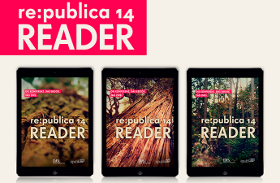Kurzthese:
Beschreibung:
This presentation is based on two years of fieldwork in the context of my PhD research on civic apps in Russia and France. It is an attempt to present a synthesis of dozens of interviews with app developers, activists, users and to share with you some amazing discoveries about how these new digital formats transform our way to collaborate with one another in the "digital public space". How do we build communities in a world where our personal data is under permanent attack ? How can we still trust one another and fight together for a social cause, especially in the case of authoritarian regimes? In the context of crisis of political, cultural, ethnical identities, what choices to make to build up new identities and new communities ?
In this presentation I focus my attention on Russian cases that are very rich on examples of creativity and courage both of developers and users. Russian civic apps are based on a principle that I call "issue-identity", when a user identifies him or herself with a problem/challenge that he or she is treating. His or her personal data, and political views become secondary (and can even be absolutely unknown). Thus, one of the most popular Russian civic apps "RossYama" ("Russian Hole", with more than 100 000 active users) is a hybrid form between a "FixMyStreet"-style application (users detect, geolocate and map data about urban anomalies) and a social network where a real community of users is being created, over this new principle of identification - "I am the pothole that I am trying to fix". Moreover, a system of rating is included in the app interface that rates users in fonction of the number of anomalies they've detected and fixed. Thus, crowdsourcing day-to-day problems via an easy-to-use software became a means of gamification of political activism that is, in Russian context, a solution to a growing political apathy and depoliticization of Russian citizens.
Surprisingly, this seemingly banal and insignificant form of participation - by mapping anomalies and sending mails and letters to municipalities in order to make them fix the problems - becomes in Russian context a real political action. For the apps' users a hole on the road becomes a symbol of the "hole in the law", a broken elevator becomes a metaphor for "broken social system": it is by fixing these little symptomes that the users try to fix the bigger problem - the corrupted system of power in Russia. These virtual communities of "fixers" are not professional political activists, participate, via this gamified form, in a big movement for the renewal of Russian politics.
In my talk I will especially focus my attention on the design of interface of these apps (system of user identification, profile pages, system of rating of users and so on) and on the solutions that developers found to protect users data and to incent them to participate. I will present several case-studies and I will propose to the audience, in a form of a 15-minutes brainstorm, to think about some web/mobile apps actual for Germany and German activists.


